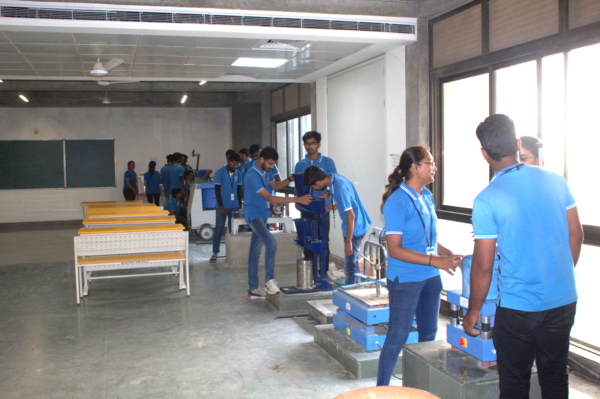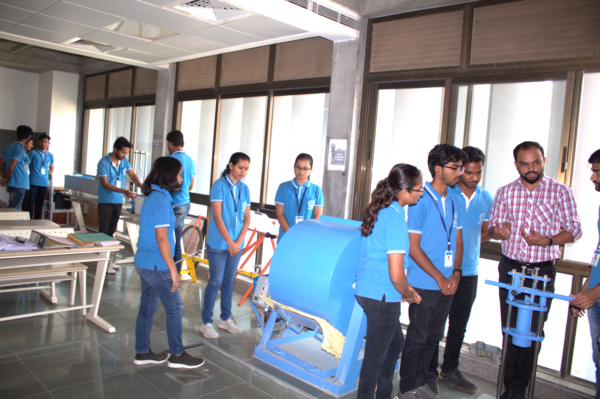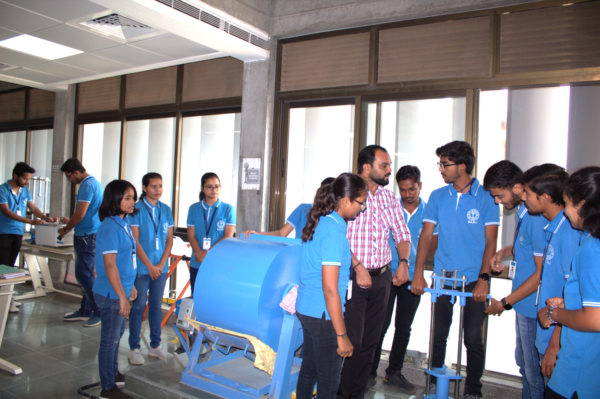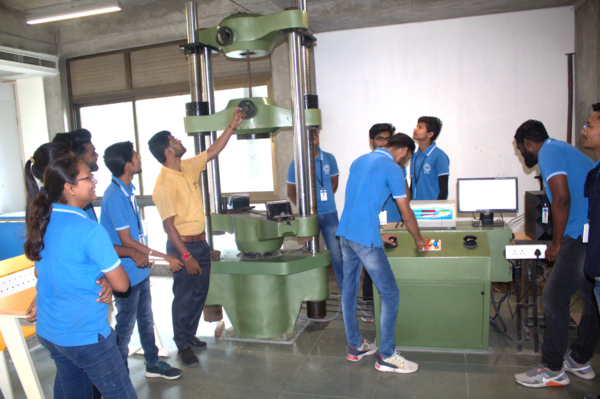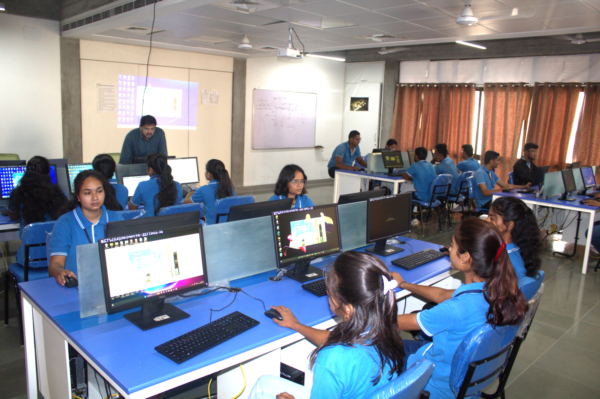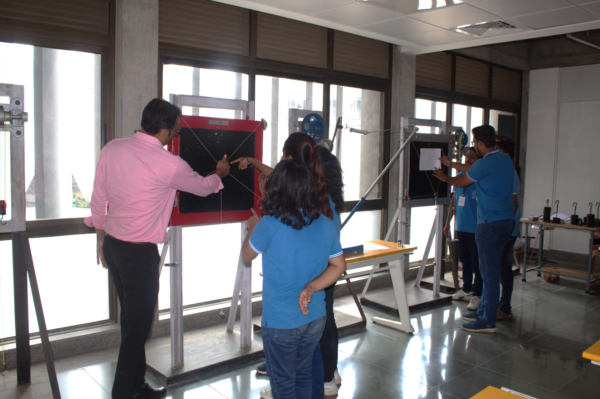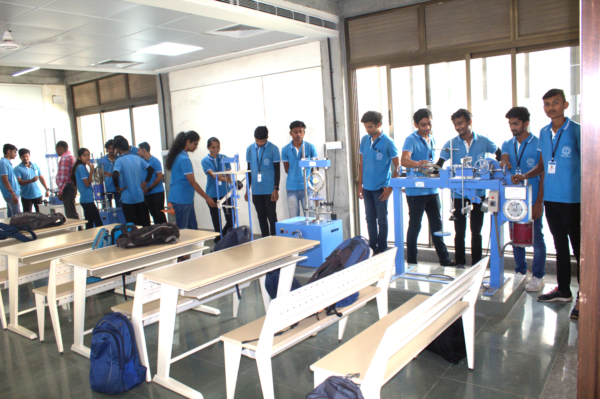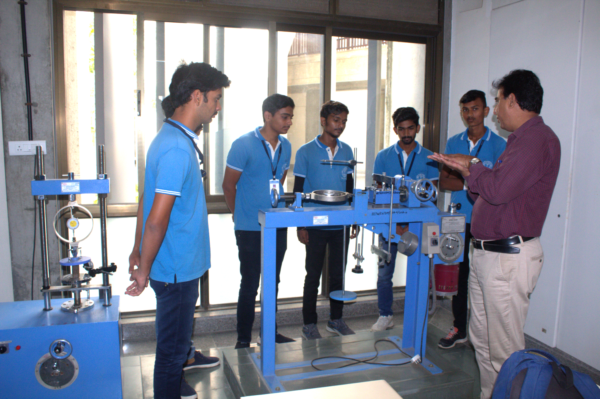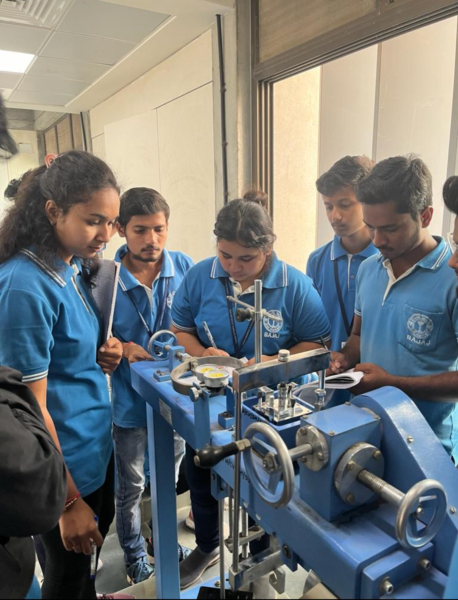- principal@bitwardha.ac.in
- 07152-295473
- DTE CODE: 4649
The department has well equipped state-of-the-art laboratories for Surveying, Geotechnical Engineering, Concrete Technology, Transportation Engineering, Materials Testing, Autocad and Quality Testing of water and waste water samples. Major equipments available in the department are Plate Load Test, Standard Penetration Test, Benkelman Beam Test, Merlin Test, Marshall Stability Test, Field CBR Test, Universal Testing Machine (1000 KN), Flexural Testing Machine (1000 KN), Concrete Mixer, Accelerated Curing Tank, Compression Testing Machine (3000 KN), Total Station for Surveying and Water samples testing kit. Softwares such as Autocad, ETABS, SAFE, and REVIT are also available. Learning process of students is made more practical by actually explaining the concepts on site. Live industrial projects in third year and final year are alloted to students coupled with their internships so as to make them industry ready.
.
| Outcome Identifiers | Outcomes |
|---|---|
| PO1 | Apply the knowledge of mathematics, basic sciences, and civil engineering to the solution of complex engineering problems. |
| PO2 | Identify, formulate, research literature, and analyze complex civil engineering problems reaching substantiated conclusions |
| PO3 | Design solutions for complex engineering problems and design of civil engineering structures that meet the specified needs |
| PO4 | Use civil engineering research-based knowledge related to the interpretation of data and provide valid conclusions. |
| PO5 | Create, select, and apply modern civil engineering and it tools to complex engineering activities with an understanding of the limitations. |
| PO6 | Apply reasoning acquired by the civil engineering knowledge to assess societal and safety issues. |
| PO7 | Understand the impact of engineering solutions on the environment, and demonstrate the knowledge for sustainable development |
| PO8 | Apply ethical principles and commit to professional ethics and responsibilities and norms of the engineering practice. |
| PO9 | Function effectively as an individual, and as a member or leader in diverse teams, and in multidisciplinary settings. |
| PO10 | Communicate effectively on complex engineering activities with the engineering community and with society at large. |
| PO11 | Understand the engineering and management principles and apply these to the multidisciplinary environments. |
| PO12 | Recognize the need for life-long learning in the broadest context of technological change. |
| Objective Identifier | Objectives |
|---|---|
| PEO 1 | Taking pride in their profession and have commitment to highest standards of ethical practices and related technical disciplines |
| PEO 2 | Able to design various structures and systems that is safe, economical and efficient |
| PEO 3 | Capable of using modern tools efficiently in all aspects of professional practices |
| PEO 4 | Dealing successfully with real life civil engineering problems and achieve practical solutions based on a sound science and engineering knowledge |
| PEO 5 | Shall be engage in continuous research, development and exchange of knowledge for professional development |
| PEO 6 | Be honest in their control and performing their duties and promote effective use of resources through open, honest and impartial services to the public |
| PEO 7 | Act in such a manner which will uphold the honour, integrity, or dignity of the engineering profession, and avoid knowingly engaging in business or professional practices of a fraudulent, dishonest or unethical nature |
| PEO 8 | Recognize that the lives, safety, health and welfare of the general public are dependent upon engineering, decision and practices |
| PEO 9 | Continue their professional development throughout their careers and provide opportunities for the professional development |
| Specific Outcomes Identifier | Specific Outcomes |
|---|---|
| PSO1 | Make the students employable in engineering industries. |
| PSO2 | Motivate the students for higher studies and research. |
| PSO3 | Motivate the students for various competitive examinations. |
